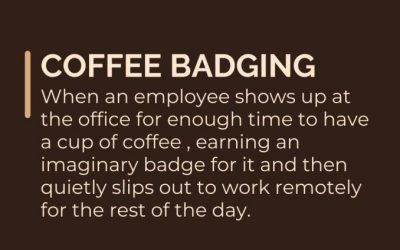It comes as no surprise that this is the time year that we see a surge in people deciding that enough is enough, that now is the time for a new start and go on to look for new job opportunities. Here we discuss some of the key factors that you should remain mindful of in order to retain your best employees in 2016.
Growth and progression
It is human nature that we want to better ourselves. The strive for growth is a very natural progression that an employee will go through during the course of their career. It would be unfair and unrealistic to expect an employee to not toy with the idea of moving on to a better position on the job ladder, whether it be within your company, or elsewhere, no matter how loyal the employee. Internal flexibility is a favourable attribute that if you have the means to implement, is likely to enhance employee retention. This is the idea of being open to moving employees around and letting them find their talents and discover what they are best at. You may find that an employee you originally placed in one role, finds their niche and performs to a higher standard in another role just by giving them some flexibility to try their hand at new projects. Obviously it is not always possible to offer that level of flexibility to employees, depending on the size and scale of the business. In this case, challenge your staff, and provide them with a higher level of responsibility. This will alleviate tedium and create a feeling of purpose and worth. Read more on employee retention here.
Work life balance
Although it may be frowned upon by employers, it should come as no surprise when people say they would prefer to work only standard or flexible hours so that they can spend more time focused on other commitments. It can be easy for employers to overlook the bigger picture, and a lack of work life balance will not only impact on the person in hand, but their spouse, family and many other aspects of their life. According to the Mental Health Foundation, over a quarter of employees in the UK feel depressed due to their work load, and a further 58% feel irritable because they struggle to maintain a healthy work life balance. Work load plays a significant part in employee satisfaction and ultimately can influence an employee’s decision on whether they stay or leave. Projects are often time oriented, do not assume that if an employee continues on with tasks beyond scheduled working hours that it is because they love their job and want to be there, which of course can be the case, but not in all instances. A feeling of pressure will profoundly impact upon an individual and force them into working beyond their contentment. If an employee is showing signs of stress and continually working beyond what is expected of them, then perhaps it is time to discuss with the individual ways to more effectively manage their time. Read our top tips in creating and implement a work life balance here.
Lack of Recognition
Measuring how appreciated an employee feels is one of the most difficult things to gauge, but one of the most important. According to a recruitment survey conducted in 2014, a simple “thank you” to your employees is worth £1,608 a year. Lack of recognition or appreciation can cause an employee to feel undervalued and unsure of how they are performing, which can ultimately lead to anxiety and stress. People perform to a much higher standard when they feel valued and a boost in confidence can have a staggering impact on the standard of work produced by your employees. If you are finding that employees are disengaged, yearly appraisals simply will not suffice. Higher engagement levels will greatly benefit both you and your employees. Making small alterations such as implementing an open door policy, and setting goals and targets for your staff to reach, will get conversation flowing, and feedback and recognition can be easily carried out. Read more on open communication here.
“The Job wasn’t what I expected”
This is the age old tale of someone who has taken a job role with certain expectations, and has been left feeling disappointed and misled when the role they undertook was not as it was expected to be. As a recruitment agency, when we ask why people are looking to move, a large number respond with “the job didn’t meet my expectations”. Often the problem is that the job description that was presented to the employee doesn’t match the role. Ambiguity of a role prior to an employee starting with your company can be far more critical than you would anticipate. People place a large amount of trust in the employer to provide them with the most accurate depiction of what they will be undertaking as part of their new role. Often it can simply be that the employee has misunderstood the job role, but can sometimes be that the employer has deliberately misled them into a job that was not for them. To prevent your new employee from making a move in the first few months of employment, take measures to ensure that the employee has a clear picture of what is expected of them. A trial day is a great way of demonstrating what the role will entail, and also the type of environment they will be working in. This is often a measure used as part of the interview process and will also give the you the chance to see if the candidate can perform to the standard that you expect of them, and fits in well within the environment.
Training and Development
If someone is feeling dissatisfied with their ability to complete their duties due to lack of knowledge, satisfaction levels will suffer and you are likely to lose them from your team. Providing training and development at work poses great benefits to both you and the employee. It is crucial in keeping your employees engaged and satisfied in their role. It is also a benefit to you, with duties and tasks being completed to a greater standard. Enhancing knowledge through the appropriate training will increase confidence, and ultimately help you to retain staff. It will give the employee the opportunity to address weaknesses and to improve on those weaknesses before they make the decision to leave on their own accord.
If you are looking for someone to join your team who can help you manage your employee satisfaction and retention, then call us today on 0207 788 6600 and we can help you find the right HR professional for the role.










